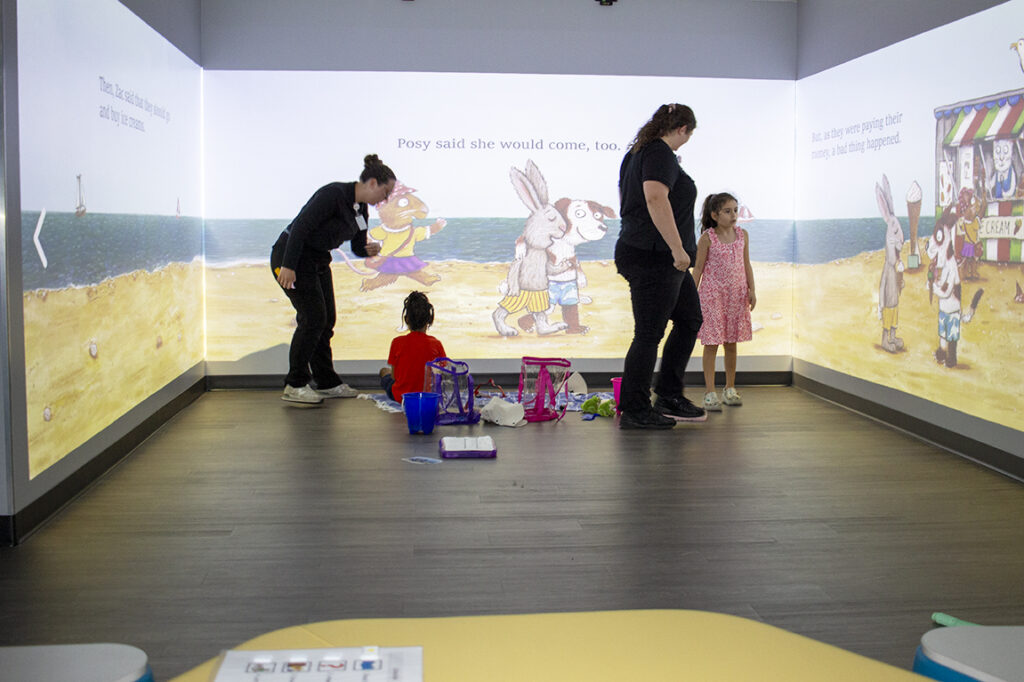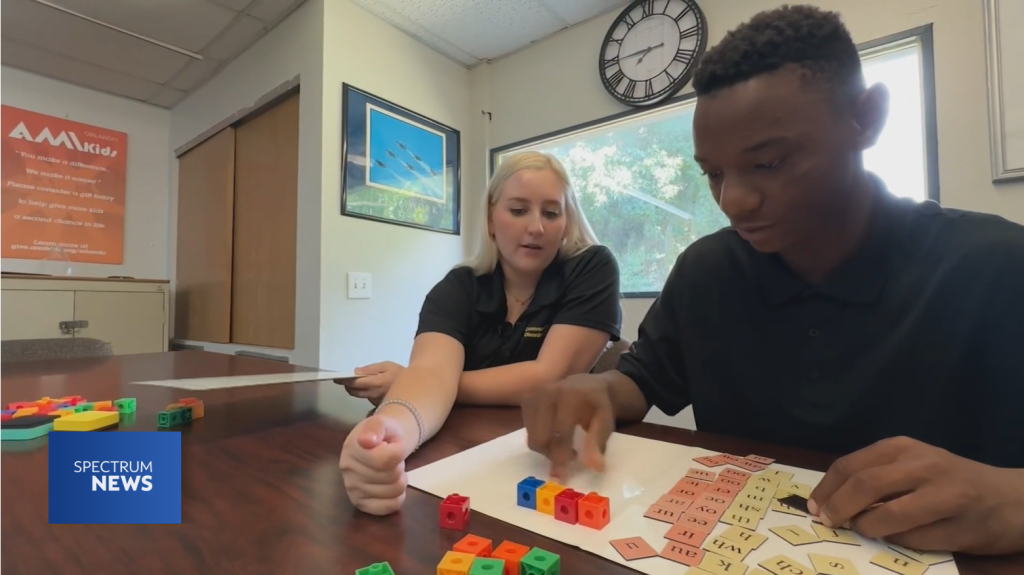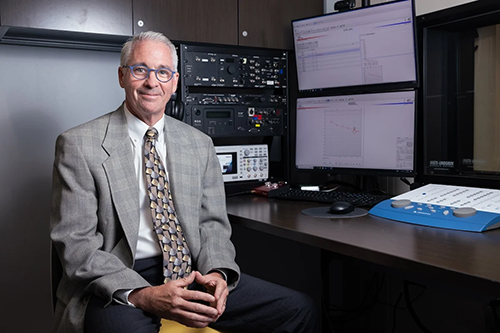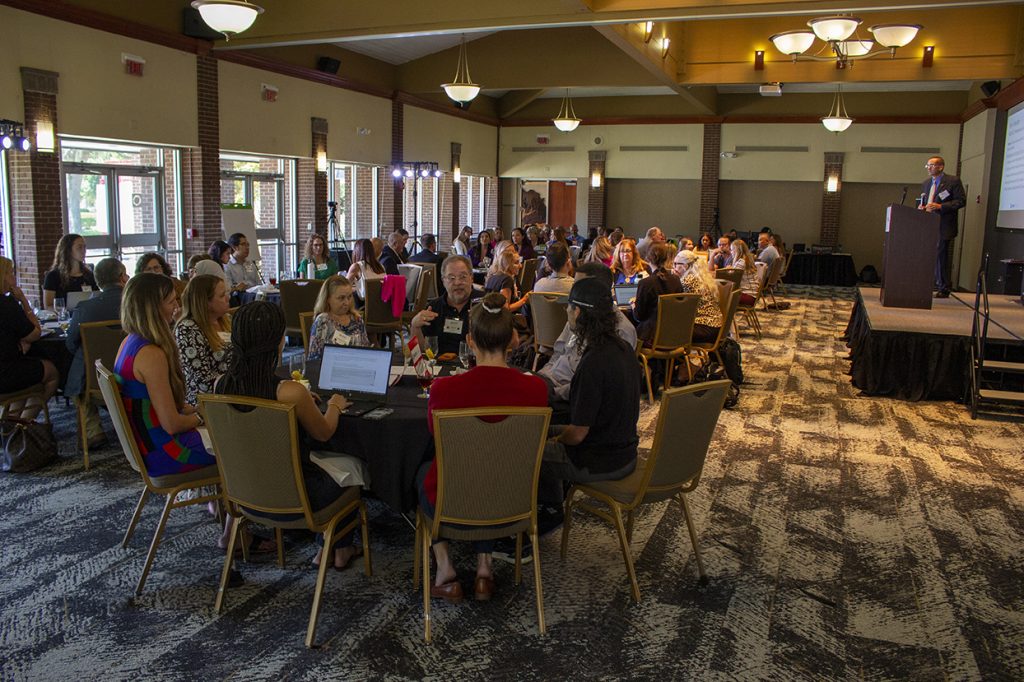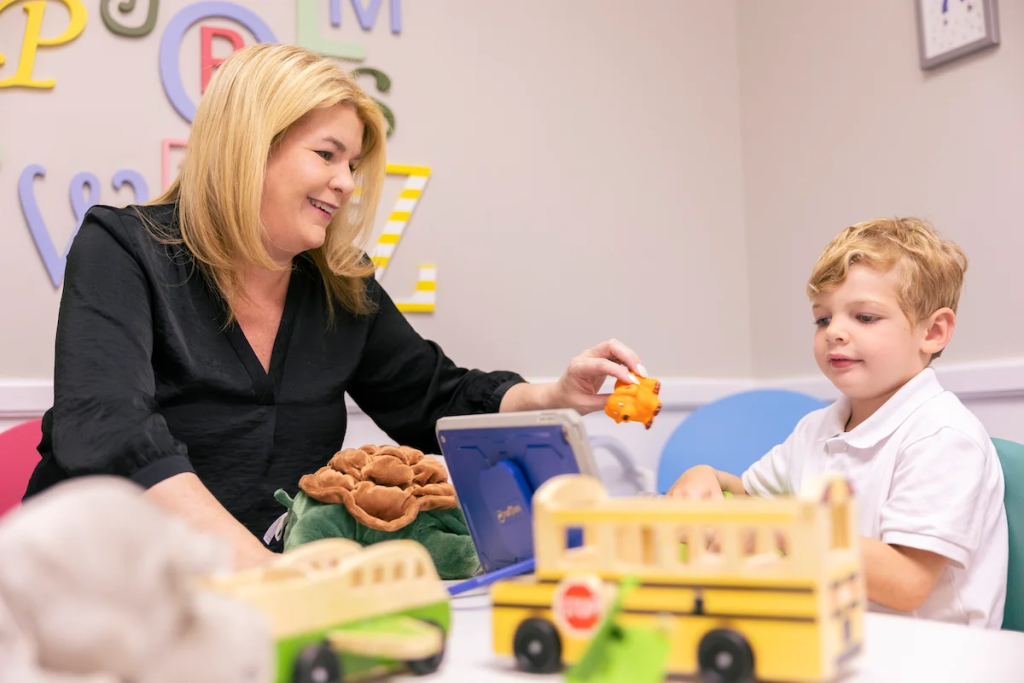When Amy Engelhoven, director of UCF’s Aphasia House, came to UCF in 2017, she said one of her goals for the program was to increase telehealth for patients with aphasia, an impairment of the production or comprehension of language and the ability to read or write.
“It’s funny how your vision becomes reality without even really trying,” Engelhoven laughed, as she recalled the events of the past year.
Aphasia House, founded in 2010, is an intensive rehabilitation center, housed in a homelike environment in the UCF Communication Disorders Clinic in Research Park. The intensive comprehensive aphasia program (ICAP) at Aphasia House provides four hours of speech and language therapy daily for six weeks.
The nature of the therapy that Engelhoven and the other licensed, supervising clinicians provide would seem to preclude telehealth. The American Speech-Language-Hearing Association offers tips for communicating with a person who has aphasia that include “Keep eye contact with me. Watch my body language and the gestures I use. Talk to me in a quiet place. Turn off the TV or radio.”
Despite the challenges, Engelhoven was successful in developing the first phase of an ICAP using telehealth.
The graduate clinicians, who earn clinical hours at the center, typically sit next to their patients and those who care for the patient to better demonstrate the various techniques designed to improve their ability to communicate.
To Engelhoven’s knowledge, speech-language pathologists have never offered an ICAP via telehealth before. She had a hunch that it could be done. Not only did patients need the therapy, but her graduate students also needed the supervised clinical hours.
“It was arduous and difficult, but it was so worth it,” Engelhoven says, as she described the process.
Engelhoven, along with Lauren Bislick , Debra Knox, Julie Matura and Todd Fix— all faculty in the School of Communication Sciences and Disorders — brainstormed the best way to provide the intensive therapy online. The pre-pandemic ICAP at Aphasia House was a six-week program, Monday through Thursday, for four hours a day.
“I pushed for a no-cost pilot program,” Engelhoven says. “Because a telehealth ICAP had never been done before, I wanted to troubleshoot and not waste resources.”
Engelhoven created a shorter pilot tele-ICAP – three hours a day, four days a week for three weeks. She enlisted the aid of Angela Ziegler, a CSD alumna and former adjunct instructor to serve as the clinician. There was no cost to the patients.
“There was a certain amount of stress,” Engelhoven says. “But we knew that these patients needed the therapy.”
The therapy sessions mirrored the sessions in Aphasia House as much as possible, Engelhoven says.
“We met in the “lobby,” and then I put the clinicians into breakout rooms with their patient and caregiver. I checked on them every 12 minutes, just like I do in Aphasia House.” After the pilot program, Engelhoven met with 16 graduate clinicians and explained the logistics of the telehealth ICAP. The pilot tele-ICAP had provided some good lessons for implementing a full-time program in the fall. Engelhoven felt their team was ready to resume a small ICAP in-person cohort which blended online components and followed COVID safety guidelines from the CDC.
In addition to their therapy sessions, patients at the center were given an iPad, through which they connected with the other patients through Zoom for socialization while remaining socially distanced. Engelhoven was at the center with the patients and always had one foot in the “virtual” world with the graduate clinicians, and the other foot in-person assisting the patients with their needs.
True to Engelhoven’s goal of developing an online ICAP program, she and Bislick took their lessons learned and shared them with SLPs through a virtual poster presentation at The Aphasia Access Leadership Summit to help others develop programs that can reach the most patients. The presentation was met with interest from the attendees, as many didn’t think it was possible to deliver this kind of therapy via online. Engelhoven says she does not know of anyone else in the field who had attempted ICAPs virtually.
“We’re hoping that ASHA [the national association that sets the standards for care] lets us continue providing telehealth,” Engelhoven says. “We know that underserved populations are not receiving enough intensive aphasia services; this could be a way to provide these important services in a cost-effective way and into their homes, which is the best way to treat them.”

